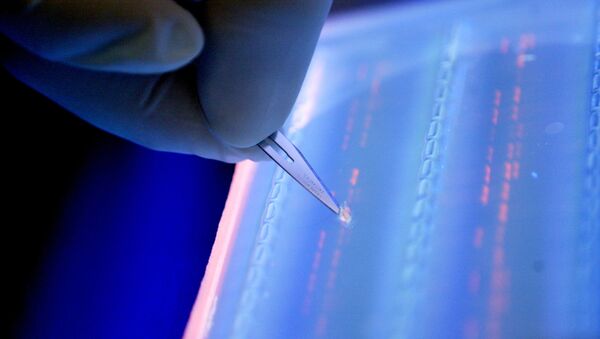Sputnik: Could you tell us more about your breakthrough in the field of detecting and treating metastatic cancers?
Dr Tyler Allen: Sure! My research focused on cancer and specifically, how cancer spreads throughout the body. So’ it spreads throughout the body through a process, known as metastasis. That’s usually, when things become complicated or dangerous for patients who have cancer. Usually, when you have a cancer, let’s say on one part of the body, like the breast, a patient won’t die from just one cancer, one tumour growing in the body. Though, usually complications have deadly effects when they spread to different parts of the body. My research was focusing on how these tumour cells, when they are travelling throughout the body, how they specifically exit the circulation and form tumours at different parts of the body. What we found, is that tumour cells actually behave much differently when they are together as a group, versus when they’re alone. Similar to how humans or people, when they are large crowds, behave much differently than when they are by themselves. This is very important, because understanding how this process is occurring is pivotal, is key in understanding how we can prevent, or treat this type of disease with cancer patients.
Dr Tyler Allen: We actually use a lot of digital services with the type of research that we’re doing. So, bio-medicine, bio-medical research we use a lot of what’s known as genetic or DNA sequencing type of technologies. So, these are technologies, a lot of them are either online or web-based, that help you to analyze certain results that you get. So one of instances: company, known as Benchling, they help with a lot of analysis and putting things in an “easy to work with” type of location online. Another is called Genius Software, which is a software that allows you to import and look at genetic sequences of samples that you’ve gotten from companies. So, things like that; a lot of genetic testing. Then there is another company, called Genewiz that actually does what’s known as RNA sequencing, as one of the areas that they work in, which is where you can take, say, you took a sample from one person and another person, you can actually analyze those samples and then see on the genetic level how they differ from one another, which is really powerful technology.
Sputnik: What conditions are necessary for scientists to be successful at work and feel good about themselves?
Dr Tyler Allen: Honestly, scientists or just people in general need an environment, where they feel supported, where they feel like they are not siloed or not doing everything alone. So, you have to make sure that you have a great support and team-like atmosphere that allow scientists to feel like they are not having to do everything on their own and they are able to collaborate freely and work with who they need to, to make sure that science they are doing is the best possible.
Dr Tyler Allen: That’s a really good question. I think, it’s not one answer, but it’s probably a combination of multiple different things. But I will say, going back to my last point about the supportiveness, but making sure that scientists have the resources necessary to function as well as they can. By resources I mean things, like services that allow them to develop not only as scientists, but as researchers, as citizens, as people of the world, as global citizens who are working, because a lot of science in the way that its technology is moving it’s really a global type of thing. If you have the ability to collaborate with people outside of your country, or even outside of your university where a company that you are at makes it a lot easier to do better science and make better breakthroughs with technology if you’re able to have this support team not just in the local area, but globally and internationally as well.





